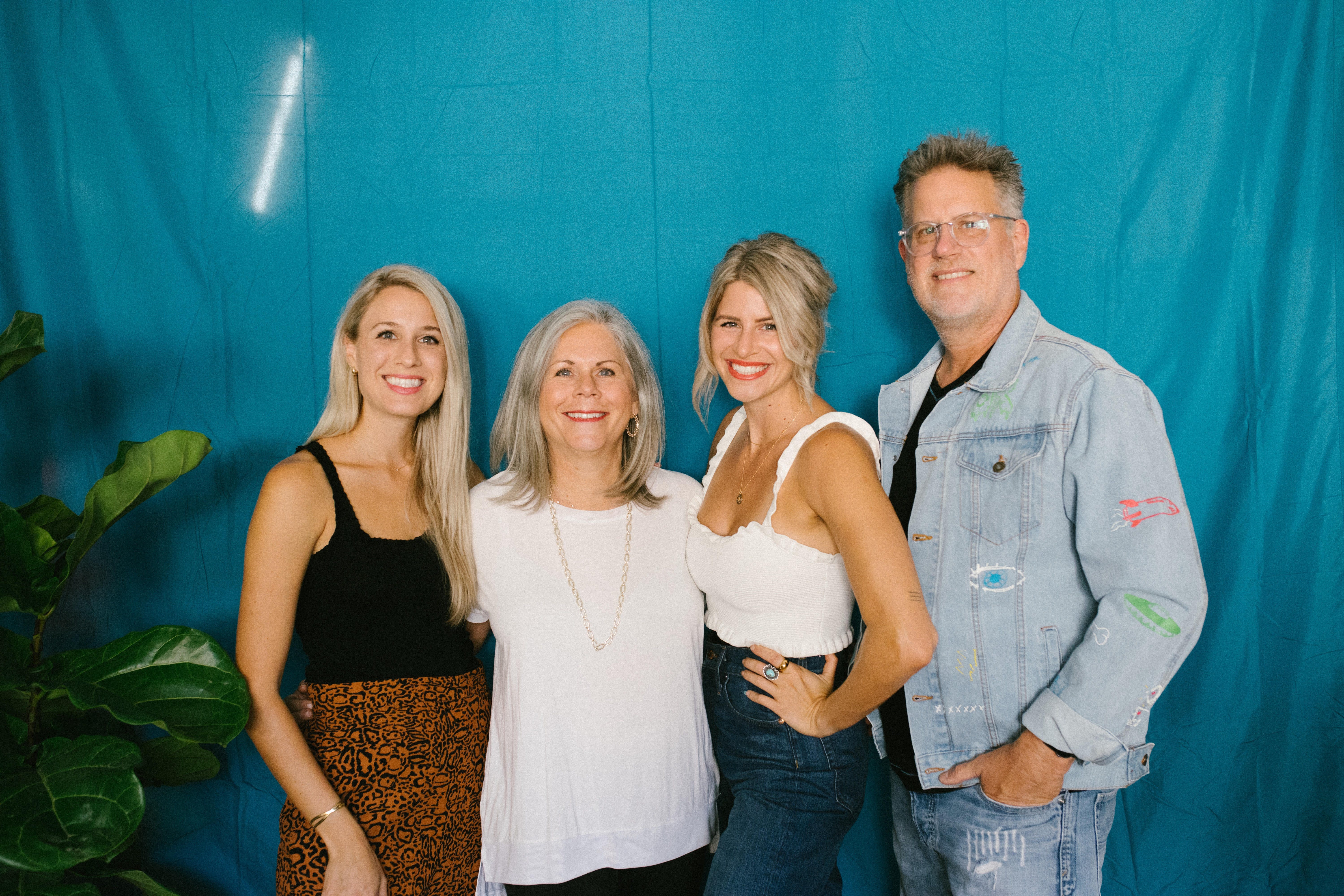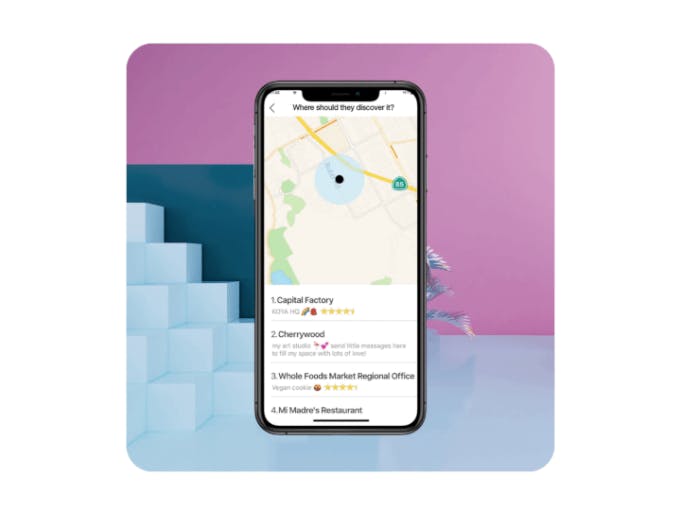Subscribe
Sign in
The family working to cure loneliness

Share On
Maker Grant recipient Courtney Werner shares what it's like to found a company with her family, and her insights behind the pivots the team has made along the way.
Courtney Werner is one of the founders of KOYA, an app for scheduling micro-gifts or messages to "show up" for loved ones (who might be afar). She's also one of our Maker Grant recipients 🎉.
I caught up with Courtney and loved hearing about the origins of KOYA. It's a unique story about four entrepreneurs with a thoughtful and timely mission.
I heard from your Racket with Sharath that you founded KOYA with your family. Tell me more!
KOYA was dreamed up at my dad, Jon’s, birthday dinner in early 2018. After asking him about his wishes for the coming year, he casually mentioned that he'd like to do another startup, but only if we were all on board. Right then and there we began throwing out different pain points.
Having lived apart from one another, we experienced how difficult it can be to care for loved ones when there is distance. This pain point is what fuels KOYA.
Unusual as it may seem to work with family, we are still kicking it. Throughout our startup journey, we have discovered new things about ourselves and each other. For example, I didn't realize that my dad, a former software engineer, worked at the Pentagon for the Air Force and on submarines for the Navy. I also wasn't aware that he formerly worked on security projects for the NSA. That's pretty cool. I also didn't know how incredible my mom, Cherie, is at building and establishing a community. Right now, she is heading up a fantastic Austin community with over 1,500 members strong and growing. While I previously traveled and worked with my older sister, Caryn, I was wonderfully surprised to see how her storytelling prowess easily translates into pitching KOYA. Whenever she pitches, KOYA resonates.
I'll be honest. I had a lot of concerns about working with my family. We have always been close, but I was away for nearly seven years and wasn't sure how we would jive. I have been pleasantly surprised by our dynamics and feel thankful for this experience. It's rare.
I'm 100% biased, but this is the dream team!

How has your idea evolved from when you started Koya and what have you learned along the way?
The core of KOYA has remained the same, but we have lived through our fair share of pivots.
While not entirely surprising, we began noticing that couples in long-distance relationships were using KOYA to "show up" for one another. To make things more fun, many would send their partner on a scavenger hunt. We had always intended to integrate a geolocation feature down the road, but were excited to see people doing this within the current app experience.
The geolocation feature offers gift givers on the app the option to hide secret messages and gifts that friends would discover at their favorite locations.

Then Covid put a damper on that aspect of the app.
To create an alternative surprise solution, we had to quickly add a "special delivery" feature where users could schedule messages that arrive spontaneously. The geolocation piece is still in the app, but we had to include the other option to make it more accessible, which is very important to our founding team. We also created a web version to make it even easier for people to schedule surprise messages without downloading an app.
As a geolocation app, the iOS 13 location permissions also threw a bit of a wrench in our onboarding process. Previously, users were prompted to select “Allow” or “Don’t Allow” when granting location permissions. Now users are given the option to also select “Only While Using The App.” When users select this option, we are not able to surprise and delight our customers. At KOYA, we don't sell user data and only use location to triangulate the user's location and deliver KOYAs. Still, it's hard to explain this to new users, which has made it tough to provide our users with an excellent first experience. We are currently working on a fix for this challenge.
How has your background in marketing helped you with KOYA and what advice can you share for startup founders without marketing experience?
Honestly, my background in psychology has helped me more than my experience in marketing. At the core, sales and marketing are all about adding value. Understanding this has helped me prioritize the customer and create more meaningful content.
Last year, we interviewed over 26 therapists and relationships experts about “What to Say When You Don’t Know What to Say.” KOYA is all about making it possible to “show up” for your friends and family, and we realized that often it’s not that people don’t want to show up; sometimes, they just don’t know where to begin.
The response to our article was pretty incredible. Not only did we learn a lot as a team, but the response also helped spark some interesting conversations within our community. To this day, this campaign received the most engagement.
Beyond that, if I had a time machine, I would test the heck out of KOYA, through no-code solutions, before spending a dime on development. There are so many resources available to new founders. The most exciting options, in my opinion, are no-code solutions because they make it possible to iterate quickly and test hypotheses. I highly recommend reading "The Mom Test" by Rob Fitzpatrick, conducting user interviews, throwing up a landing page, and scoping out potential demand before building a product. This would have saved us time and money.
What's next for KOYA?
We are currently coming out of a month of user discovery interviews to help us create an offering for businesses. Our goal is to generate enough revenue through this to continue to make the consumer side of KOYA freely accessible. While lofty, we have big plans for KOYA and hope to one day become a catalyst to end the loneliness epidemic.
Comments (5)
Courtney Ruth@courtneyruth
KOYA
@sarah_wright7, you are a gem! Thank you for this incredible opportunity. I dreamt of sharing KOYAs story on Product Hunt one day but didn't imagine that it'd happen this soon.
Share
Amazing story of a unique family! Let's open a category for Maker Families.
One way that families can work to cure loneliness is by staying connected with each other. This can involve regular communication, spending time together, and engaging in activities that promote togetherness. By doing so, family members can provide emotional support and a sense of belonging that can help alleviate feelings of isolation. In addition to staying connected, families can also seek out professional help if necessary. For example, if a family member is struggling with addiction, seeking treatment at a facility like the one mentioned on https://www.ghgossip.com/the-effects-of-drug-abuse-on-the-family/ can help not only the individual but also the entire family. Addiction can have a significant impact on the family dynamic, causing feelings of loneliness and isolation for all involved. By addressing the root cause of the issue and working together to overcome it, the family can become stronger and more connected.
More stories

Mathew Hardy · How To · 3 min read
How to Detect AI Content with Keystroke Tracking

Sanjana Friedman · Opinions · 9 min read
The Case for Supabase

Vaibhav Gupta · Opinions · 10 min read
3.5 Years, 12 Hard Pivots, Still Not Dead
Kyle Corbitt · How To · 5 min read
A Founder’s Guide to AI Fine-Tuning

Chris Bakke · How To · 6 min read
A Better Way to Get Your First 10 B2B Customers

